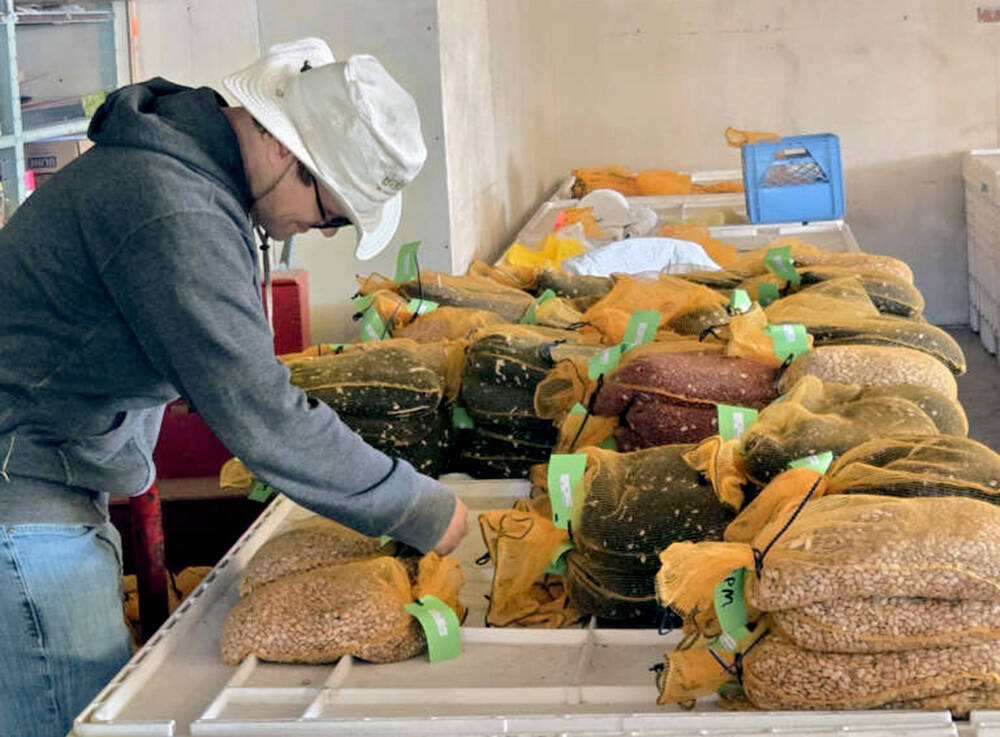Farm business plans could be one of the tools to help farmers get through the pandemic instability of 2020.
“COVID-19 has given us a year where we can see the benefits that business planning can bring,” said Tom Button, Editor of Country Guide during a round table discussion with three other panelists during last month’s Canada’s Digital Farm Show.
Why it matters: Farm business plans are vital to help move businesses forward, yet only a few producers have them. Challenges are destined to continue in agriculture but a farm business plan can help businesses overcome them.
Read Also

Bean research breeds community giving
University of Guelph dry bean researcher Dr. Mohsen Yoosefzadeh Najafabadi champions sustainability by donating surplus breeding program beans to support food security and community art initiatives.
“We were formed out of the crisis of the 1980s, where commodity prices tanked and interest rates soared. Today, we are looking around here in 2020 with COVID-19 and kind of wondering, is this the next crisis that may cause a different appreciation for farm business management,” says Heather Watson, executive director with Farm Management Canada.
A study completed by Farm Management Canada, Healthy Minds, Healthy Farms, found that 21 per cent of farmers regularly follow a written business plan and 48 per cent indicate that they rarely or never do.
“In terms of mental health of the farmers that do follow (business plans) and have a written business plan, we found 88 per cent of those said it’s contributed to their peace of mind. They’re able to manage under greater amounts of stress because they have an idea of where they are going,” says Watson.
Business plans are great for mental health, but they also help to set businesses up for the future, with a continuity plan. They have been found to be the most effective tool for uniting the farm team around a vision to keep the business healthy.
“Adopting farm business practices, like planning, has been proven to increase profitability by up to 525 per cent,” says Watson.
Rob Hannam, president and client director with Synthesis Agrifood Network says farm business plans help move a business forward, assist in business goal setting, team communication and contingency planning.
“Planning contingencies makes you better prepared for those things you don’t see coming,” says Hannam,
Reg Dyck, producer and instructor at the University of Manitoba says that knowing cost of production within a farm business plan is extremely important.
“It helps with so many other things; the ability to borrow money, or helping with your marketing skills. Knowing your cost of production is a huge element and 60 per cent of farmers don’t know their cost of production,” says Dyck.
With a business plan, farmers are better prepared for different scenarios when a business threat occurs.
“I’ve told my students it’s relatively easy to run a farm when you have good prices, good weather, equipment functions and you have no HR problems. But that’s not the reality of farming and management really starts to kick in when some of these things go wrong,” says Dyck.
Watson says Farm Management Canada often asks if it is just farmers that struggle with a business plan. They notice that businesses run by families struggle more than sole proprietorships.
“Working with your family members, sometimes you’re not seeing them as employees, you’re not seeing them as part of the team and it’s hard to make that transition to ‘we’re going to treat the farm like a business.’ What does that mean for the relationships I have with the people I’m working with?,” says Watson.
Farm business plans begin with communication.
“Farms that work together and have this over-arching view, objective and business plan, they are the ones that are more likely to be successful because they are on the same plan,” says Dyck.
When a farm decides to create a business plan, sometimes it’s helpful to find advisors or professionals to help start the process.
“If there are groups of people, you need to get (them) on the same page, going down the same path. Sometimes it’s helpful to have an outsider come in and help with the process to bring new ideas, make sure everyone gets a voice in that discussion, or just the discipline of ‘yes we are going to do it’,” says Hannam.













